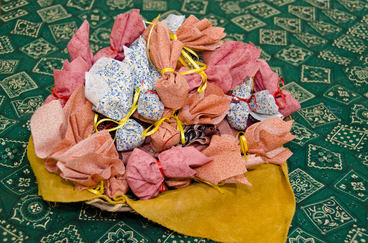
Mission
Our mission is to promote family and cultural preservation and improve outcomes for children involved in the child welfare system through supporting current and future child welfare practitioners, building capacity within the child welfare workforce, and developing innovative research and practice in partnership with communities in the region. We are especially committed to developing and supporting effective practice with American Indian children and families.
Vision
We envision tribal and public child welfare systems that are effective, interculturally responsive and have healthy workforces that support family and cultural preservation in order to strengthen communities and radically reduce the number of children entering out of home care.
Values
Relational Worldview
We seek to be good relatives, recognizing our connection to others is more than a professional relationship. We work in a good way that includes seeking balance in the physical, mental, emotional, and spiritual aspects of ourselves and our work. In this way, we are connected and committed to all with whom we work, including our funders, students, and Tribal and community partners.
Collaboration and Bridging Across Systems
We value the strengths and perspectives of others and believe that a learning child welfare system can be created through strong, inclusive alliances of trust that respect multiple perspectives and voices. We believe effective systems change work can happen when people across professional disciplines are engaged with their head and heart.
Equity and Inclusion
We are dedicated to being interculturally responsive in our work by remaining committed to social justice, recognizing the voices of historically marginalized populations, and respecting Tribal sovereignty. We embrace culturally based ways of knowing, understanding we all have much to learn from one another.
Tribal Sovereignty
We affirm American Indian, Alaska Native, and all other Indigenous Nations’ inherent right to govern themselves and to identify what is in the best interest of their communities. We believe the preservation and resiliency of culture and the family comes from the strength of Tribal communities. Therefore, we remain Tribally-guided by engaging in work that addresses the expressed needs of Tribal communities and Tribal child welfare practitioners.
Education and Training
Through our child welfare scholars’ program and our work with community practitioners, we are committed to developing education and training that assumes the best of people, fosters self-awareness and growth, and highlights the strengths of Tribal communities. We work to cultivate welcoming learning environments where current and future practitioners feel included. We embrace models informed by Tribal culture and ways.
Staff
Estelle Simard
Jon Phillips
Amy Madsen
Karen Nichols
Articles about the Center for Regional and Tribal Child Welfare Studies
Mina, F. (2020, Sept. 13). A Plan to Train Child Welfare Workers on American Indian Rights. The Imprint News: Youth & Family News. https://imprintnews.org/child-welfare-2/plan-train-child-welfare-workers-american-indian-rights/47275?utm_medium=email&utm_source=govdelivery
Haight, W., Waubanascum, C., Glesener, D., Day, P., Bussey, B. & Nichols, K. (2019). The Center for Regional and Tribal Child Welfare Studies: Reducing disparities through indigenous social work education. Children and Youth Service Review, 100, 156-166.
Haight, W., Waubanascum, C., Glesener, D., Day, P., Bussey, B. & Nichols, K. (2020). The Center for Regional and Tribal Child Welfare Studies: Systems change through a relational Anishinaabe worldview. Children and Youth Service Review, 119.